Philippines: UNESCO stands by as forests and livelihoods are destroyed on Palawan
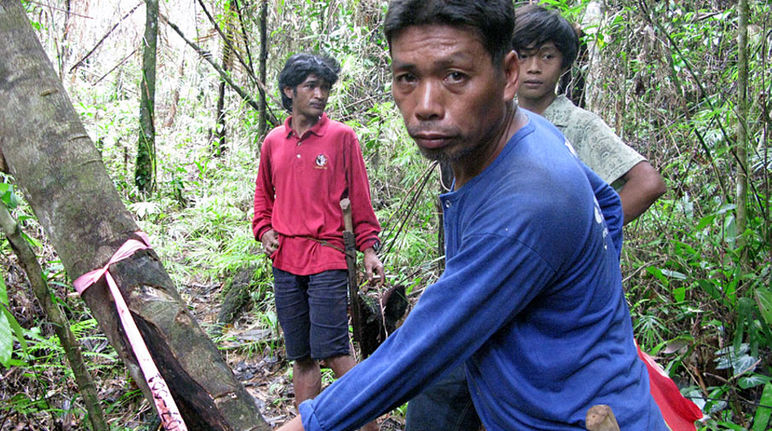 The mining corporation has already marked trees for logging inside a forest belonging to the indigenous Palawan.
The mining corporation has already marked trees for logging inside a forest belonging to the indigenous Palawan.
On the Philippine island of Palawan, a tragedy is looming: The Government is handing out new concessions to mining corporations. The highly destructive mining of nickel and chrome would destroy the most biodiverse area in the Philippines. UNESCO declared the whole Province of Palawan a Man and Biosphere Reserve in 1990, due to its high biodiversity. Despite repeated appeals by human rights and environmental organisations, UNESCO remains silent about the destruction of people's livelihoods and tropical forests.
Call to action“”
He worked for the protection of his island, its people and natural treasures – but he could not win in his lifetime. Environmental campaigner and radio jouranlist Gerry Ortega was shot dead on 24th January, just as he was leaving his radio station DWAR Palawan. His friends and colleagues from Palawan's environmental and human rights organisation ALDAW are in no doubt: Ortega was murdered because he had publicly and repeatedly spoken out against the government's mining plans, which would destroy the officiallly protected tropical forests of Palawan and the livelihoods of indigenous communities and lowland farmers.
Palawan is the third largest island group in the Philippines and a biodiversity hotspot, home to 49 animal and 56 plant species which are threatened with global extinction according to the international conservation organisation IUCN.
UNESCO declared the entire Province of Palawan a Man and Biosphere Reserve in 1990 – a diverse natural landscape with tropical rainforests, montane forests, mangroves and coral reefs. The spectacular Tubbataha Reef Marine Park and the Puerto-Princesa Subterranean River National Parc have been designated as World Heritage Sites by Unesco.
The southern part of the main island is home to the indigenous Palawan, some of them are living in partial isolation. Their livelihood is based on swidden cultivation, hunting and gathering, and commercial collection of Non-Timber Forest Products (NTFPs). Lowland Palawan also engage in cultivation of coconuts and processing of copra, as well as in animal rearing. In 1992, a Strategic Environmental Plan for Palawan (SEP) was drawn up through massive support from European Union, which is to promote sustainable development, under consideration of nature conservation and the livelihoods and consent of the population. It also demarcates core zones which are to be absolutely protected and other zones, where activities are restricted and controlled. The SEP Programme has been supported by the European Union, which has also invested 17 million Euros in the Palawan Tropical Forestry Protection Programme (PTFPP). PTFPP is a 7-year special project, which started in 1995 with the objective of assisting forest preservation in Palawan through catchment approach, with sustainable development strategy implemented by the communities. Nevertheless, many people on the island complains that most of the money was used to pay disproportionally high salaries to foreign consultants, project directors/managers and government officials and that, ultimately, the project has left behind little tangible evidences of success.
In spite of all conservation efforts and investments, the Provincial Government of Palawan seems to favour the intensification of mineral exploitation on the island, in compliance with the policy of mining revitalization passed in 1995, during the former administration of Gloria Macapagal Arroyo. MacroAsia Mining Corporation, Ipilan Nickel Mining Corporation and LEBACH are making claims to protected zones and cultivated land, where they have already excavated test-pits and made deep drilling-holes. Specifically, this has also occurred in the upland forests of Brooke's points, which are home to indigenous communities, and in the Gantong Watersheds. Further south, Rio Tuba Nickel Mining Corporation (RTNMC) has already built roads across the Bulanjao mountain range, thus undermining the integrity of a unique biodiversity hotspot. All of this has been documented by the indigenous network ALDAW with photos, GPS and a videos.
Very soon, the Governor of Palawan and Chair of the Palawan Council for Sustainable Development will make a crucial decision on whether to give the green light to MacroAsia, Ipilan Nickel and LEBACH to pursue their mining activities in forested land.
UNESCO must act immediately, so as not to lose their reputation as a respected protector of natural and cultural heritage. They must not allow the unique habitats of Palawan and the livelihoods of the population to be sacrificed by short-sighted policy makers and greedy companies. The work of the murdered journalist Gerry Ortega must not have been in vain.
UPDATE 31.1.2011: Ironically, Acting Secretary of the Department of Natural Resources, Ramon Paje, has just been appointed as the government's representative in the UNESCO National Commission of the Philippines. It is a shame that one of the key pro-mining figures in the country has been given such a position that, in principles, should entail a total and uncompromising commitment towards the protection of the Philippine's biocultural diversity. Surely, the indigenous peoples of Palawan are not happy about this decision and urgently ask Sec. Paje's new position to be revoked and given instead to another candidate having a more sensitive environmentally and culturally-friendly approach" said an ALDAW spokesmanLetter
Director-General Mrs. Irina Bokova
Unesco Headquarters, Paris
e-mail: i.bokova@unesco.org
Director Mr. Natarajan Ishwaran
Division of Ecological and Earth Sciences
Secretary
Man and Biosphere Programme
Unesco Headquarters, Paris
e-mail: n.ishwaran@unesco.org
Deputy Director Mr. Rob Lee
Regional Science Bureau for Asia & Pacific
Specialist for Environmental Sciences
Unesco Office Jakarta, Indonesia
e-mail: r.lee@unesco.org
Dear Director-General Bokova,
Dear Mr Ishwaran,
Dear Mr Lee,
Palawan Island is one of the most biodiverse regions in the Philippines. In order to preserve its biodiversity, UNESCO declared the whole Province a Man and Biosphere Reserve in 1990. Inlcuded are two World Heritage Sites: The Tubbataha Reef Marine Park and the Puerto-Princesa Subterranean River National Park. UNESCO set up the Man and Biosphere Reserve programme in order to protect people's ancestral lands and culture as well as the diversity of flora and funa from exploitation and destruction.
The importance of this measure in Palawan is demonstrated by the fact that 49 of the animal and 56 of the plant species living there are globally threatened with extinction, according to the international conservation organisation IUCN.
The Man and Biosphere Reserve programme, however, appears to be failing – despite the full knowledge of the responsible UNESCO Commission. The Philippine Government is planning to massively expand mining as well as oil palm plantation on Palawan Island.
On 28th January, the Governor of Palawan plans to make the final decision about Macro Asia's and INC's mining concessions inside the protected area. I therefore call on you to use your influence in order to stop the plans for mining and oil palm plantations inside the Palawan Man and Biosphere Reserve, according to the UN Declaration on the Rights of Indigenous Peoples and the Strategic Enviornmental Plan for Palawan.
The Macro Asia Minisnt Corporation and Ipilan Nickel Corporation (INC) already hold concessions for land belonging to indigenous Palawan communities, some of whom are living in voluntary near-isolation. Those concessions for mining nickel and chrome lie partly inside the officially highly protected core zone of the Man and Biosphere Reserve, as well as in areas where activities are restricted. Those regions are supposed to be protected from exploitation uder the Strategic Environmental Plan for Palawan (SEP). Mining inside these regions will destroy the livelihoods of the communities and the land on which they depend for their survival.
The Rio Tuba Nickel Mining Corporation is building roads through the Bulanjao highlands, a biodiversity hotspot. Road construction is causing severe harm to the environmen, such as health problems and harm to livelihoods of indigenous Palwawan communities as well as lowland farmers. Affected communities have not been consulted, even though they have a right to participaten in decisions under national and international law.
The national indigenous peoples' network ALDAW (Ancestral Land/Domain Watch) has recently submitted clear evidence for the destructive activities carried out by mining corporations. Their data, which rely on geo-tagging, and video prove that Macro Asia and INC are carrying out exploration inside protected core zones, primary forests and watersheds:
http://participatorygis.blogspot.com/2011/01/macroasia-and-plundering-of-protected.html and http://vimeo.com/19046439
National and international protests by environmental and human rights campaigners have so far failed to make the Governments of the Philippines and Palawan Province see sense. People on Palawan who are working for the protection of their natural treasures are facing major threats. A shocking example is the murder of radio journalist and human rights activst Gerry Ortega on 24th January. Ortega was an official voice against the mining companies.
ALDAW has repeatedly called on the UNESCO Commission to act but has never received a reply. I therefore ask you: Has UNESCO got no instruments for guaranteeing the protection of their Biosphere Reserves? Are those declarations not backed by effective measures?
Please use your influence in order to stop the plans for mining and oil palm plantations inside the Palawan Man and Biosphere Reserve, according to the UN Declaration on the Rights of Indigenous Peoples and the Strategic Enviornmental Plan for Palawan.
Yours faithfully,
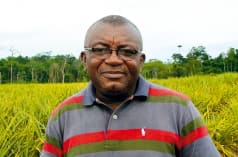
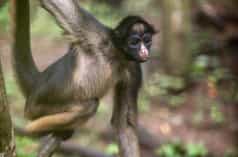
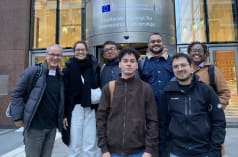








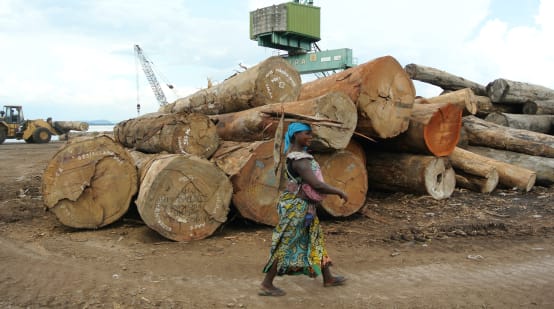
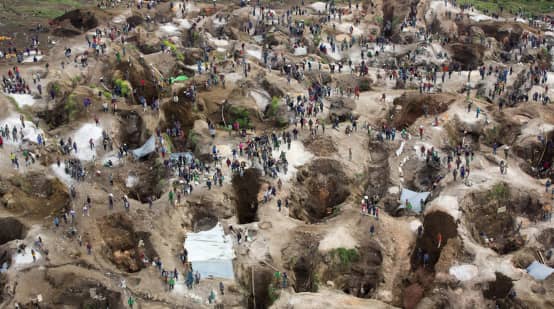
 Recent successes
Recent successes